peyote cactus for sale
peyote cactus for sale, The Peyote cactus (Lophophora williamsii) has been used for centuries, particularly in Native American spiritual practices, for its psychoactive properties. This small, spineless cactus contains mescaline, a powerful psychedelic compound. While peyote is illegal in many regions for recreational use, its sale and purchase are legal for certain religious and ceremonial purposes in the United States, particularly for members of the Native American Church.peyote cactus for sale
peyote cactus sale
peyote cactus sale, In recent years, interest in peyote cactus has surged, with people seeking to buy peyote for a range of reasons, from spiritual use to gardening enthusiasts looking to cultivate this unique plant. However, finding a reputable source for buying peyote cactus can be difficult, given the legal and ethical concerns surrounding its use.
Section 1: What is Peyote Cactus? The History and Significance
Before diving into where and how to buy peyote cactus, it’s important to understand the plant’s background, significance, and uses. Peyote is native to the deserts of North America, primarily Mexico and the southwestern United States. It grows slowly and is often found in the wild in arid and rocky terrain.
The Significance of Peyote in Native American Cultures
Peyote has played a vital role in the spiritual and religious practices of Native American tribes for thousands of years. It is used in ceremonies to induce visions, communicate with the divine, and gain spiritual insight. In these contexts, peyote is typically consumed in its natural form or as part of a ritual involving prayer, singing, and meditation.
The Psychoactive Properties of Peyote
Peyote’s active ingredient is mescaline, a naturally occurring psychedelic compound. Mescaline affects serotonin receptors in the brain, leading to altered perceptions of reality, vivid visual and auditory hallucinations, and profound shifts in consciousness. While mescaline has been used for therapeutic purposes in some contexts, it is regulated as a controlled substance in many countries, including the United States.
peyote cactus purchase
peyote cactus purchase, One of the primary concerns for those seeking to buy peyote cactus is its legal status. In many parts of the world, including most of the United States, peyote is illegal to possess, use, or distribute due to its psychoactive properties. However, there are certain exceptions to this rule.
Peyote Use in Religious and Ceremonial Contexts
In the U.S., the legal status of peyote varies based on its intended use. Under the American Indian Religious Freedom Act, members of the Native American Church are allowed to use peyote as part of their religious ceremonies. This exception is crucial for people who want to purchase peyote legally for spiritual purposes.
Buying Peyote for Personal Use: The Legal Grey Area
For those outside the Native American Church, the purchase of peyote cactus for personal use is illegal in many states. However, it is sometimes legal to purchase peyote cactus for cultivation or ornamental purposes in certain regions, as long as the plant is not consumed or used for its psychoactive properties.
peyote plant for sale
peyote plant for sale, Now that we understand the legal context, let’s dive into where you can actually find peyote cactus for sale. Whether you’re looking for peyote plant for sale or you want to buy peyote cactus online, it’s essential to choose a reputable source to avoid legal and ethical issues.
Online Retailers: The Most Convenient Option
The most straightforward way to find peyote cactus for sale is through online retailers. Many websites offer seeds, small plants, or mature peyote cactus for sale. However, there are some risks involved in buying peyote online:
Authenticity:
Not all sellers are reputable, and some may offer counterfeit or genetically modified plants.
Legal Concerns:
Depending on your location, buying peyote online may be illegal, especially if it’s for consumption.
Shipping Restrictions:
Some states or countries may prohibit the shipment of peyote cactus.
In-Person Sales: Visiting Local Nurseries or Specialty Stores
While less common, some specialty nurseries or cactus dealers might sell peyote cactus in-person. Visiting a store in your area could offer the advantage of verifying the plant’s authenticity and health before making a purchase. However, always confirm that the seller operates legally within your jurisdiction.
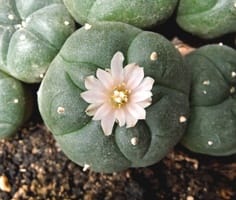
buy peyote cactus
buy peyote cactus, When buying peyote cactus, it’s essential to understand what to look for to ensure that you’re getting a healthy, authentic plant. Whether you’re purchasing peyote for sale online or in person, here are key factors to consider:
1. Plant Size and Health
Peyote cactus is slow-growing, so you’ll often find small plants, sometimes just the size of a coin. Ensure the cactus is free from disease, rot, or damage. A healthy peyote plant should be firm, with smooth skin and no signs of fungus or pests.
2. Ethical Sourcing
Because peyote is considered sacred by many indigenous groups, it’s essential to buy from sources that respect the plant’s cultural significance. This means buying from sellers who harvest peyote sustainably and responsibly.
3. Price Range
Peyote cactus is relatively expensive due to its slow growth and legal restrictions surrounding its sale. On average, prices for small peyote plants can range from $20 to $100 or more, depending on size and maturity.
4. Authenticity
Ensure that you are purchasing Lophophora williamsii, as some sellers may misrepresent other cacti species as peyote.
Section 5: Growing Peyote Cactus: A Beginner’s Guide
If you’re interested in cultivating your own peyote cactus, you may choose to purchase seeds or small plants to grow at home. However, growing peyote can be challenging due to its specific environmental needs.
Ideal Growing Conditions for Peyote Cactus
Climate:
Peyote thrives in dry, desert-like environments with plenty of sunlight. It requires temperatures between 70-100°F (21-38°C) and minimal humidity.
Soil:
Peyote needs well-draining soil. A cactus mix or a homemade mix of sand, pumice, and perlite can provide the ideal growing medium.
Watering:
Water the plant sparingly, allowing the soil to dry completely between waterings. Over-watering can cause root rot, a common issue with peyote cactus cultivation.
Peyote Cultivation Tips
Patience:
Peyote grows slowly, and it can take several years to produce a mature plant. Some growers opt to purchase larger plants for quicker use.
Container Growing:
Growing peyote in containers is often the best option, as it allows you to control the soil conditions and prevent overwatering.
Protection:
Be sure to protect the plant from pests and extreme temperatures. Peyote is a delicate plant and needs careful monitoring.
Section 6: Ethical Considerations When Purchasing Peyote Cactus
As peyote is a sacred plant, ethical considerations are crucial when purchasing it. Ensure that you are supporting responsible sellers who follow sustainable and ethical practices. Unfortunately, peyote is often over-harvested in the wild, which can harm the ecosystem and diminish future supply.
Supporting Sustainable Harvesting Practices
Cultivated Peyote:
Opt for buying cultivated peyote cactus, as this ensures that wild populations are not being exploited. Some growers focus on growing peyote for sale without impacting natural habitats.
Fair Trade Practices:
Look for sellers who promote fair trade and ethical harvesting practices to ensure that indigenous groups’ cultural rights are respected.
Section 7: The Future of Peyote Cactus: Conservation Efforts
Given the growing demand for peyote cactus, conservation efforts are increasingly important. Organizations are working to protect peyote populations in the wild and ensure that they remain a sustainable resource for future generations.
Protecting Wild Peyote Populations
Legal Protection:
In some regions, peyote is classified as a threatened species, and its collection is regulated to prevent over-harvesting.peyote cactus for sale
Conservation Programs:
Some groups are working to reintroduce peyote into areas where it has been depleted and create controlled environments to promote growth.peyote cactus for sale
Section 8: Conclusion: Is Buying Peyote Cactus Right for You?
Whether you’re seeking peyote for religious use, cultivation, or as a unique addition to your cactus collection, it’s essential to consider the legal, ethical, and cultural implications of your purchase. By understanding the significance of the plant, its legal status, and how to find reputable sources, you can make an informed decision about buying peyote cactus.peyote cactus for sale
Frequently Asked Questions (FAQ)
Q1: Is it legal to buy peyote cactus?
- The legality of buying peyote depends on your location and its intended use. It’s legal for religious purposes under the American Indian Religious Freedom Act but may be illegal for personal use in many regions.peyote cactus for sale
Q2: Where can I buy peyote cactus online?
- You can find reputable online retailers selling peyote cactus through specialty nurseries, but always ensure they are compliant with local laws.peyote cactus for sale
Q3: How long does it take for peyote to grow?
- Peyote grows slowly, often taking 5-10 years to reach full maturity. Growing it from seed is particularly time-consuming.peyote cactus for sale
Q4: Can I buy peyote for personal use?
- In most places, buying peyote for personal, non-religious use is illegal. Always check the laws in your area before purchasing.peyote cactus for sale
Q5: How much does peyote cactus cost?
- Prices for peyote cactus vary widely, but small plants typically range from $20 to $100, depending on the size and maturity of the cactus.peyote cactus for sale
Where can I buy psychedelic cacti online?
We offer Mescaline cacti in two types. Those are the San Pedro cactus and the Peyote cactus. Maybe you’d rather grow them all by yourself? That is also possible. Then buy our San Pedro, Peyote cactus or LSA seeds. You can order both the psychedelic cactus and the seeds online in our webshop. We will ship it to you quickly and discreetly.peyote cactus for sale
What is a mescaline cactus?
The San Pedro and the Peyote cacti contain mescaline. Mescaline is a psychedelic substance. The effects of these psychedelic cacti are comparable to LSD and magic mushrooms. Although it may still be a bit new to us in the Netherlands, it has been used for centuries in Central America, mainly Mexico. In Mexico, these cacti are used during sacred rituals of the shaman. peyote cactus for sale
A trip on psychedelic
A trip on psychedelic San Pedro or Peyote is a spiritual experience. The trip can be very intense if you can’t let go of control. We also offer females Happy Caps Trip-E on. These are capsules that also trigger a trip, but much more subtle and less intense. We always recommend novice trippers to try such a capsule before switching straight to a hardcore hallucinogen.peyote cactus for sale
What are the effects of the San Pedro and the Peyote cacti?
As with other forms of drugs, mescaline affects everyone differently. The dosage and the mood and sensitivity play a role in this per person. The psychedelic cacti is best known for its hallucinatory properties. Mescaline is an alkaloid that causes these hallucinations. The effects you can feel when using mescaline cacti are:peyote cactus for sale
Colors become bright
- Self-consciousness changed
- Another perception of time
- Hallucinations
Your way of thinking has changed
- Euphoric feeling
- chance of vomiting the taste
medicinal herbs with light effects.
Just like with mushrooms or truffles, for example, you can also find answers to questions that you have had for quite some time. You enter a different consciousness and can start a conversation with yourself. It seems that your brain works more or differently. That is why mescaline is also used for microdosing in Silicon Valley. If you are looking for less intense effects, we also offer medicinal herbs with light effects.
How do you dose peyote cactus?
A usual dose is about 20 grams of dried peyote. With this dose, you will generally experience a moderate-intensity trip. Do you want to experience a mild trip? Then choose a dosage of 15 grams. If you want to experience a heavy trip, we recommend that you opt for a dose of 30 grams. For beginners, we advise to always start with a mild trip. This way you discover how you react to the peyote. When you are going to discover new trips, we always recommend being careful and not to take too much immediately.
Are peyote cacti safe?
Peyote cacti are safe. A study by American researchers has shown that peyote cacti does not damage the brain and does not cause psychological problems in people who regularly use peyote. It is recommended that you think carefully about how you want to use the peyote cactus and what dosage you choose. The bitter taste of the cactus can make you dizzy and nauseous. This makes some people vomit or may experience abdominal cramps or diarrhoea. In addition, there are also people who get cold or a shivering feeling.
Can vitamins and detox products ensure a quick recovery after a trip on cacti?
Vitamins can support you well after a trip with psychedelic cacti. The body is exhausted after a trip and many important substances have been consumed. By replenishing these deficiencies, for example with vitamins, your body will recover faster. It is also not surprising that the body consumes a lot of vitamins and minerals after a good trip on mescaline. A supplement of vitamins and minerals can therefore accelerate recovery.peyote cactus for sale
Everything You Need to Know About Peyote Cactus: A Detailed Guide
Peyote cactus (Lophophora williamsii) is one of the most unique and culturally significant plants in the world. Known for its psychoactive properties due to the presence of mescaline, a powerful hallucinogen, peyote has been used for thousands of years by Native American tribes in religious ceremonies. Its small, spineless, and distinctive appearance makes it not only a subject of fascination for those interested in spirituality and indigenous cultures but also for gardeners and collectors of rare plants.
about peyote cactus
In this article, we’ll explore everything you need to know about peyote cactus, including its history, significance, cultivation, and where to find peyote cactus for sale. Whether you’re looking to buy peyote cactus for spiritual, medicinal, or gardening purposes, this comprehensive guide will provide you with the insights and information to make an informed decision.peyote cactus for sale
1. What is Peyote Cactus?
Peyote is a small, spineless cactus native to the desert regions of North and Central America, particularly Mexico and parts of the southwestern United States, including Texas. It grows slowly and is typically found in dry, rocky, and arid landscapes. The cactus is known for its psychoactive properties, which are attributed to mescaline, a naturally occurring alkaloid found in the cactus.peyote cactus for sale
The peyote plant height
The peyote plant is typically about 2–5 inches in diameter and grows in a globular shape. It is often referred to as the “button” because of its round, flat appearance. When consumed, peyote can induce vivid hallucinations, altered perceptions of reality, and a heightened sense of spiritual connection.peyote cactus for sale
2. The History and Cultural Significance of Peyote
2.1 Peyote and Native American Traditions
Peyote has been used for thousands of years, with evidence of its consumption dating back to pre-Columbian times. Indigenous groups, especially those in the southwestern United States and northern Mexico, have used peyote as part of their religious ceremonies. For Native Americans, peyote is considered sacred and is used in rituals to induce spiritual visions, communicate with deities, and connect with the divine.peyote cactus for sale
The use of peyote
The use of peyote as part of ceremonial practices is central to the religious beliefs of the Native American Church. In fact, the American Indian Religious Freedom Act (AIRFA) of 1978 recognized the legal right of Native Americans to use peyote in religious ceremonies. This legal protection has allowed members of the Native American Church to continue their rituals using peyote without fear of prosecution, although restrictions still exist for others seeking to use the cactus for personal or recreational purposes.peyote cactus for sale
2.2 The Role of Peyote in Healing and Medicine
In addition to its spiritual significance, peyote has also been used for medicinal purposes by indigenous cultures. It has been used to treat ailments such as pain, fever, and digestive issues. Some believe that peyote’s psychoactive properties can also facilitate healing by helping individuals confront personal struggles and traumas in a therapeutic setting.peyote cactus for sale
Modern scientific research on mescaline
Modern scientific research on mescaline, the active ingredient in peyote, has also been exploring its potential therapeutic applications in treating psychological disorders like depression, anxiety, and PTSD. However, more research is needed to fully understand its medical benefits and risks.
3. The Psychoactive Effects of Peyote
Peyote’s most notable feature is its ability to induce psychedelic experiences. This is primarily due to mescaline, the psychoactive compound found in the cactus. When consumed, peyote can cause significant alterations in sensory perception, mood, and consciousness. Here are some of the effects typically associated with peyote consumption:peyote cactus for sale
Visual Hallucinations:
Colors may seem more vibrant, and individuals may experience visual distortions, such as geometric patterns or moving objects.peyote cactus for sale
Euphoria and Emotional Release:
Many users report feelings of intense euphoria and emotional release, allowing them to process deep emotional issues.peyote cactus for sale
Heightened Awareness:
Some people feel a sense of connection to nature, the universe, or a higher power, often leading to profound spiritual insights.peyote cactus for sale
Altered Time Perception:
Time may seem to slow down or speed up during a peyote experience, making minutes feel like hours.
Physical Sensations:
Some users may experience nausea or dizziness, which are common side effects of consuming peyote.The effects of peyote typically begin within 30–90 minutes of consumption and can last anywhere from 8 to 12 hours. The intensity of the experience can vary greatly depending on the dose and the individual’s mindset and environment.peyote cactus for sale
4. Legal Status of Peyote Cactus
The legality of peyote varies significantly depending on the country or region, and its use is highly regulated in many areas.peyote cactus for sale
4.1 Peyote in the United States
In the United States, peyote is classified as a Schedule I controlled substance under the Controlled Substances Act, meaning that it is illegal to possess, use, or distribute peyote for recreational purposes. However, Native American Church members are granted an exemption from these laws under the American Indian Religious Freedom Act, allowing them to use peyote in religious ceremonies.
the possession and use of peyote outside of religious contexts
For non-Native Americans, the possession and use of peyote outside of religious contexts is prohibited. Some states have specific laws regulating peyote use, while others may allow its use for research purposes.
4.2 Peyote in Other Countries
In many other countries, including Canada, the United Kingdom, and Australia, peyote is also considered a controlled substance, and its use is restricted. However, in some places, there may be limited exceptions for research or indigenous ceremonial use.peyote cactus for sale
where peyote grows naturally
In Mexico, where peyote grows naturally, it is legal for indigenous groups to harvest and use peyote in their rituals. However, the government has recently taken steps to regulate peyote harvesting to prevent over-exploitation of wild populations.peyote cactus for sale
5. Peyote Cactus Cultivation and Care
If you’re interested in growing your own peyote cactus, it’s essential to understand its specific care requirements. Peyote is a slow-growing plant and can take years to reach maturity, so patience is key.
5.1 Ideal Growing Conditions
Peyote requires specific growing conditions to thrive. Here are some key factors to consider when cultivating peyote cactus:peyote cactus for sale
Climate:
Peyote prefers warm, dry climates with minimal humidity. It thrives in temperatures between 70–100°F (21–38°C).peyote cactus for sale
Soil:
The cactus needs well-draining soil to prevent root rot. A mix of cactus soil, sand, and pumice is ideal.
Sunlight:
Peyote requires full sun to grow properly. However, it should be protected from intense, direct midday sunlight, especially when young, as this can cause sunburn.peyote cactus for sale
Watering:
Peyote is drought-tolerant and should be watered sparingly. Let the soil dry out completely between waterings, and reduce watering during the winter months when the plant is dormant.peyote cactus for sale
5.2 Propagation
Peyote can be propagated from seeds or offsets (small “pups” that grow around the base of the mature plant). Growing peyote from seed requires a warm, humid environment to encourage germination, and it can take several years before the plant is large enough to harvest.
6. Where to Buy Peyote Cactus
If you’re interested in buying peyote cactus, you have a few options. However, it’s important to note that buying peyote is highly regulated, and its legality depends on where you live and your intended use.anxiety pharmacy remain the best choice to buy peyote cactus.WE HAVE OTHER RELATED PRODUCT CATEGORY SUCH AS PILLS, RESEARCH CHEMICALS AND PSYCHEDELICS
6.1 Buying Peyote Cactus Online
Several reputable online nurseries and specialty plant retailers sell peyote cactus, but it’s crucial to ensure that the seller is complying with local laws regarding the sale and distribution of peyote. Some sellers offer seeds, small plants, or cuttings for cultivation, while others may sell mature peyote cacti.When purchasing peyote online, always verify the seller’s credentials and make sure that they harvest or cultivate peyote sustainably and ethically.peyote cactus for sale
6.2 Finding Local Nurseries or Specialty Shops
Some independent nurseries or cactus specialty stores may offer peyote cactus for sale. It’s best to check with local nurseries or botanical gardens, especially those that specialize in rare or desert plants. Always ask about the source of the peyote cactus and whether it has been harvested sustainably.peyote cactus for sale
7. Ethical Considerations When Purchasing Peyote Cactus
Given peyote’s spiritual significance to indigenous groups, it’s crucial to consider ethical issues when purchasing the cactus. Over-harvesting in the wild has been a concern, and it’s important to choose sources that cultivate peyote responsibly. This helps protect natural populations and respects the cultural importance of the plant.peyote cactus for sale
Conclusion
Peyote cactus is much more than just a unique plant—its historical, cultural, and spiritual significance make it one of the most fascinating and revered cacti in the world. Whether you are looking to grow peyote for its beauty, use it in religious ceremonies, or simply explore its role in traditional healing practices, understanding its complexities will allow you to approach it with the respect it deserves. Always make sure to source your peyote responsibly, and be mindful of its legal status and cultural importance.peyote cactus for sale
peyote cactus buy
When you peyote cactus buy, make sure that the seller is:
Ethical and complies with the legal regulations surrounding peyote trade
Offering cultivated peyote rather than wild-harvested
Providing clear information on the origin and sustainability of their plants
Ethical, legal vendors ensure that your peyote purchase supports conservation and is safe for use. anxietypharmcy can direct you to trusted, licensed sources for those seeking peyote for legal and ceremonial uses.
buying peyote cactus
Buying peyote cactus involves checking both the legal status and source. While peyote is not widely available for commercial sale in many areas, it can be found at:
Specialized nurseries that cultivate peyote ethically
Online vendors with proper licenses
Be cautious of vendors selling peyote in areas where it may be illegal to possess or sell, especially online. Always prioritize legal, sustainable sources like anxietypharmcy for your needs.
peyote cactus seeds for sale
If you’re interested in growing your own peyote cactus, many nurseries and online sellers offer peyote cactus seeds for sale. Before purchasing, keep in mind:
Peyote seeds can be difficult to grow and require specific environmental conditions.
Growing peyote may be regulated in some areas.
Check the legal status of growing peyote in your area before buying seeds, and ensure that the seller operates within the boundaries of the law. For advice and resources, consult anxietypharmcy for regulated and sustainable options.
where can i buy peyote cactus
You may be wondering, where can I buy peyote cactus? Depending on your location, here are your best options:
Online specialty stores that offer legally cultivated peyote
Local nurseries with a focus on ethnobotanical plants
Ceremonial suppliers who cater to those looking for peyote for spiritual or traditional use
Always verify the seller’s legal status and avoid purchasing from questionable or unlicensed sources. For guidance and safe access, anxietypharmcy can assist you in finding reliable options.
buy peyote cactus online
For those asking how to buy peyote cactus online, be sure to purchase from reputable, licensed vendors. Ensure that:
The site clearly states that their peyote is cultivated legally
They provide transparency about the origin and sustainability of their plants
They offer secure payment options and a clear return policy
While purchasing online can be convenient, it’s crucial to prioritize safety and legality. anxietypharmcy can provide insights on finding responsible sellers and guide you in sourcing products safely.
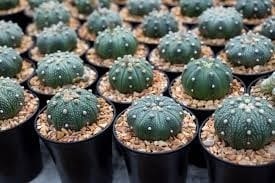
peyote cactus buy online
If you’re looking to peyote cactus buy online, there are several factors to consider:
Legality: Ensure the online store ships to your region and complies with local laws.
Ethical sourcing: Choose vendors who offer cultivated, not wild-harvested plants.
Shipping regulations: Some areas restrict shipping of peyote due to its legal status.
Look for online platforms that prioritize ethics and sustainability. For guidance, anxietypharmcy offers consultations and may assist you in navigating online purchases safely and legally
peyote cactus seeds amazon
When looking for peyote cactus seeds on Amazon, you may come across various suppliers. However, it’s important to:
Verify the seller’s credibility: Make sure they offer ethically sourced seeds.
Check legal restrictions: In some regions, selling peyote seeds may be prohibited due to its controlled status.
Be mindful that not all listings may comply with local laws, so check the seller’s reviews and the legality of your purchase. For guaranteed legal and regulated access, anxietypharmcy is a trusted resource.
buy peyote cactus seeds
If you wish to buy peyote cactus seeds, several options exist:
Ethical online nurseries that specialize in ethnobotanical plants.
Specialized online stores catering to those who grow peyote for ceremonial or ornamental use.
Before purchasing, ensure the seeds are legally harvested and that the vendor follows sustainable practices. For responsible sourcing, anxietypharmcy can guide you toward licensed suppliers.
peyote cactus seeds
Peyote cactus seeds are tiny but powerful, known for their potential to grow into one of the most iconic psychoactive plants. These seeds require:
Warm, dry conditions to germinate.
Patience—growing peyote can take several years to reach maturity.
If you’re starting your peyote-growing journey, consider purchasing from licensed or certified suppliers to avoid any legal complications. Anxietypharmcy can provide assistance and guidance in selecting the right seeds.
peyote cactus grow kit
For first-time growers, a peyote cactus grow kit can make the process much easier. These kits typically include:
Peyote cactus seeds
Specialized soil
Instructions for optimal care
These kits can help ensure that your peyote cactus grows in the right environment. Make sure you’re purchasing from a legitimate, ethical source. Anxietypharmcy may offer recommendations for trustworthy vendors.
peyote cactus texas
Peyote cactus Texas is a popular topic due to the plant’s natural habitat in the southern U.S., particularly in Texas. However, there are some important considerations:
Peyote is legally protected in many regions, including parts of Texas, where it grows naturally.
Harvesting peyote in the wild is illegal without proper permits.
To ethically cultivate peyote, it’s essential to purchase from licensed nurseries and avoid wild harvesting. Anxietypharmcy can assist with finding legally sourced peyote plants.
can you buy peyote cactus
If you’re asking can you buy peyote cactus, the answer is yes, but with important legal considerations. Peyote is:
Illegal to harvest in the wild without permits.
Legal to buy for research, spiritual, or ceremonial use in some areas.
Make sure you’re purchasing legally grown peyote cactus from regulated vendors. For guidance on purchasing safely, consult anxietypharmcy.
order peyote cactus online
If you want to order peyote cactus online, you must ensure the following:
The online seller complies with local laws surrounding peyote sales.
The plant is cultivated legally and ethically.
Be cautious of vendors who do not disclose their growing practices. For trusted online sources, consider working with anxietypharmcy, which can provide secure and regulated options.
are peyote cactus legal
Are peyote cactus legal? The legality of peyote depends on the region and intended use:
In the U.S., it’s legal for Native American religious ceremonies under federal law, but illegal to possess or harvest for personal use without proper permits.
In other countries, peyote’s legality can vary widely, so research your local laws before purchasing.
For those interested in acquiring peyote legally and safely, anxietypharmcy can offer resources and information on the legality of peyote in your area.
cactus parecido al peyote
If you’re curious about a cactus parecido al peyote, there are other species that resemble peyote, such as:
San Pedro cactus: Known for its psychoactive properties, although different from peyote.
Bolivian torch cactus: Another psychoactive cactus with similar effects to peyote.
These cacti are often used in similar spiritual and ceremonial practices. However, each has unique growing conditions and effects, so research before planting or consuming any of these alternatives.
can you grow peyote cactus
Yes, you can grow peyote cactus at home, but it requires patience. Growing peyote involves:
Long growth periods—it may take years for peyote to mature.
Specific environmental conditions, such as dry, well-drained soil and warm temperatures.
Ensure you are growing peyote legally and sustainably. To help with sourcing or advice on cultivating peyote, anxietypharmcy can provide useful guidance.
grow peyote cactus
To grow peyote cactus, follow these steps:
Start with seeds or small plants purchased from a legitimate source.
Prepare the right environment: Use well-drained soil and place the plant in a warm, sunny spot.
Be patient—peyote is a slow-growing cactus that can take several years to reach maturity.
Before starting, ensure that the growth of peyote is legal in your region, and purchase sustainably sourced plants. For more details on responsible cultivation, reach out to anxietypharmcy.
growing peyote cactus
Growing peyote cactus requires a specific approach. While it’s a slow-growing plant, with the right care, it can thrive in the right environment. Here’s how to get started:
Start with seeds or small plants from legal, reputable sources.
Plant in well-drained soil—peyote thrives in sandy or cactus-specific soil mixes.
Provide ample sunlight—peyote needs direct sunlight for several hours a day.
Water sparingly—allow the soil to dry between watering to avoid rot.
Ensure warmth—peyote thrives in temperatures between 70-90°F (21-32°C).
If you’re uncertain about where to source your peyote or how to cultivate it, anxietypharmcy offers guidance on both the legal aspects and the best care practices.
how long does it take to grow a peyote cactus
Wondering how long does it take to grow a peyote cactus? It typically takes several years for peyote to reach maturity, depending on the growing conditions. Here’s a general timeline:
Germination: Seeds can take several weeks to germinate, provided they have the right temperature and soil.
Maturity: A fully mature peyote cactus can take anywhere from 5 to 10 years to grow large enough to harvest.
Growing peyote is a long-term commitment, so it’s important to be patient and provide consistent care. For advice and tips on cultivation, reach out to anxietypharmcy, who can help guide you through the process.
how to grow peyote cactus
How to grow peyote cactus involves creating the optimal conditions for this slow-growing plant:
Start with seeds or small seedlings from trusted vendors.
Plant in cactus soil mix or create your own by combining sand, perlite, and peat.
Place in a sunny location—ensure it gets direct sunlight for at least 6 hours per day.
Water sparingly—only water when the soil is dry, as peyote is drought-tolerant.
Ensure proper drainage—use pots with drainage holes to prevent waterlogging.
Patience is key. Peyote grows slowly, so you’ll need to allow it time to develop. For legally sourced peyote and more advice on growing, anxietypharmcy is a reliable resource.
images of peyote cactus
Looking for images of peyote cactus? Here’s what you should expect:
Small, rounded buttons: Peyote typically grows as small, round discs.
Green to blue-green color: The plant often has a blueish-green tint.
Top with a central crown: The top of the peyote cactus has a crown-like formation, where the plant grows out in segments.
Peyote is also known for its psychedelic properties, often linked to its use in ceremonial practices. You can find images of peyote online, but always verify their authenticity.
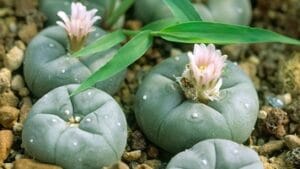
is peyote cactus legal
Is peyote cactus legal? The legality of peyote varies depending on where you live:
In the U.S., peyote is protected by law. It’s illegal to harvest peyote in the wild without a permit. However, it is legal for Native American religious ceremonies under federal law.
In other countries, the legal status of peyote can vary widely. It is illegal in many countries, and penalties can be severe for its possession or use.
Before purchasing or growing peyote, it’s crucial to research the laws in your region. Anxietypharmcy can help guide you toward legal and regulated sources for peyote products.
order peyote cactus
If you want to order peyote cactus, consider the following:
Check for legality in your region—ensure it is legal to buy peyote where you live.
Buy from ethical sources—purchase peyote from licensed growers or nurseries that provide cultivated, not wild-harvested plants.
Ordering online is a convenient option, but it’s essential to be careful about where you’re buying from. Make sure you’re working with regulated vendors. Anxietypharmcy offers legally sourced peyote products and guidance.
peyote cactus home depot
Many people wonder if they can find peyote cactus at Home Depot. While Home Depot offers a variety of plants, it’s unlikely that you’ll find peyote cactus there, as it is protected and regulated in many places. The store may carry other types of cacti but not the specific psychoactive peyote.
For authentic peyote cactus, visit specialized nurseries or licensed online retailers. Anxietypharmcy is a trusted source for those looking for legally regulated peyote cactus.
peyote cactus images
If you’re searching for peyote cactus images, here’s what you’ll typically find:
Rounded, disc-like appearance: Peyote is known for its small, rounded shapes, often resembling buttons or small disks.
Blue-green or grayish tones: The cactus often has a blueish-green hue, making it visually distinct.
Crown-shaped top: The top of the peyote cactus has a crown-like formation where the plant grows out in radial segments.
These images often showcase the plant in its natural environment or as part of its spiritual use. If you’re looking for authentic images or resources, anxietypharmcy can provide guidance and help you find reputable sources.
peyote cactus legality
When it comes to peyote cactus legality, the status can vary greatly depending on the region and how you intend to use it. Here’s what you need to know:
In the U.S., peyote is protected by law due to its status under the Endangered Species Act. Harvesting peyote from the wild is illegal without a permit.
Religious use: Native American religious ceremonies are exempt from restrictions and may legally use peyote under the American Indian Religious Freedom Act.
Legal in other regions: Some countries may allow peyote cultivation or use for research or personal purposes, while others may have strict regulations.
Before purchasing or growing peyote cactus, make sure to understand the local laws in your area. For safe, legal access, consult anxietypharmcy for guidance.
peyote cactus pictures
If you’re interested in peyote cactus pictures, they typically depict:
Small, button-shaped plants: Each plant looks like a disc with prominent, crown-like features at the top.
Clusters of peyote: You might find images showing multiple plants growing together in desert environments.
Detailed close-ups: Some pictures highlight the texture and unique features of the cactus.
These pictures offer a glimpse into the beauty and significance of peyote in ceremonial practices. You can often find high-quality images from ethical sources that focus on conservation and spiritual use. For curated content and legal sourcing, check with anxietypharmcy.
peyote cactus seeds legal
A common question is whether peyote cactus seeds are legal. Here’s a breakdown:
In the U.S., peyote seeds are legal to purchase and cultivate in many areas as long as you don’t harvest the plant from the wild. Regulations apply if you’re planning to grow peyote for personal use or research.
International legality: The legality of peyote cactus seeds can differ by country, so always check local laws before buying.
Native American use: Members of Native American tribes can legally cultivate peyote for religious purposes.
Always purchase peyote seeds from a trusted, licensed vendor to ensure that you’re adhering to legal guidelines. For a reliable source, anxietypharmcy can provide you with legally sourced seeds and helpful guidance.
pictures of peyote cactus
Looking for pictures of peyote cactus? These images typically showcase:
Small, disk-shaped plants with a spiny, crown-like top.
Natural habitats such as the desert regions of Texas and northern Mexico, where peyote thrives.
Close-ups of the button-like structure, highlighting the unique appearance of the plant.
If you need authentic, high-quality images of peyote cactus, it’s best to check reputable sources that focus on botanical photography or cultural and spiritual use. Anxietypharmcy can also help provide resources and safe access to ethically cultivated peyote cactus.
FAQ: Peyote Cactus
1. What is peyote cactus?
Peyote (Lophophora williamsii) is a small, spineless cactus native to Mexico and the southwestern United States. It contains mescaline, a naturally occurring psychedelic compound used for spiritual and medicinal purposes, especially by Indigenous groups.
2. Is peyote cactus legal?
In most countries, including the U.S., peyote is illegal for recreational use due to its mescaline content. However, exceptions exist for its ceremonial use by members of the Native American Church under the American Indian Religious Freedom Act.
3. What does peyote cactus do?
Peyote induces hallucinogenic effects, including altered perception, visual and auditory distortions, and deep introspection. Its effects can last from 8 to 12 hours.
4. How is peyote cactus consumed?
Peyote buttons (dried tops of the cactus) are typically chewed or brewed into tea. It has a very bitter taste, so some users also grind it into capsules.
5. How long does peyote stay in your system?
Mescaline, the active compound in peyote, can remain detectable in the body for up to 3 days in urine, though effects typically last about 10 hours.
6. Can you grow peyote cactus at home?
Yes, it can be grown legally in some places for ornamental purposes. However, growing peyote is restricted or banned in many regions due to its mescaline content.
People Also Ask – With Answers
1. What does peyote look like?
Peyote is a small, round, bluish-green cactus with no spines. It typically grows close to the ground in dome-shaped buttons that are harvested for use.
2. Is peyote dangerous?
While not physically addictive or toxic in normal doses, peyote can cause intense psychological effects, nausea, and anxiety. It should not be used by individuals with mental health conditions or without supervision.
3. What religion uses peyote?
Peyote is used as a sacrament by the Native American Church and other Indigenous groups for spiritual insight and healing.
4. How long does it take to feel the effects of peyote?
Effects typically begin 30 to 90 minutes after ingestion and peak around 2 to 4 hours in.
5. Is peyote the same as mescaline?
Peyote contains mescaline, but they are not the same. Mescaline is the psychoactive compound, while peyote is the plant source that naturally contains it.
Related Searches – With Answers
1. Peyote cactus legality
Peyote is classified as a Schedule I drug in the U.S., but religious use is permitted for members of federally recognized Native American tribes. Laws vary in other countries.
2. How to identify peyote cactus
Look for a small, button-shaped cactus with a blue-green color and fuzzy white tufts. It grows in desert regions and lacks spines, unlike many other cacti.
3. Peyote vs San Pedro cactus
Both contain mescaline, but San Pedro (Echinopsis pachanoi) is a tall, columnar cactus, while peyote is small and round. San Pedro is faster-growing and more commonly cultivated.
4. History of peyote use
Peyote has been used for over 5,000 years by Indigenous peoples of Mexico and the U.S. for ritualistic, healing, and religious ceremonies.
5. Peyote spiritual meaning
Peyote is seen as a sacred medicine that opens the mind, enhances spiritual awareness, and fosters connection with ancestors and nature.
6. How long does peyote take to grow?
Peyote is a very slow-growing cactus, often taking 5 to 10 years to reach maturity in the wild or controlled environments.
Peyote: Ancient Ritual, Modern Curiosity
The peyote cactus (Lophophora williamsii) may not catch your eye at first. This small, spineless plant grows low to the ground in the deserts of northern Mexico and the southwestern United States. But despite its modest appearance, peyote has played a powerful role in spirituality, medicine, and, more recently, public debate.
At the heart of peyote’s potency is mescaline, a naturally occurring psychedelic compound that has inspired visions, healing practices, and controversy alike. Revered for thousands of years by Indigenous cultures, peyote remains a sacred sacrament for many — even as recreational interest and legal restrictions swirl around it.
What Is Peyote?
Peyote is a slow-growing cactus whose round, button-like tops contain mescaline, a potent hallucinogen. Unlike many cacti, it has no spines, and its greenish-blue body blends into arid landscapes. The word “peyote” comes from the Nahuatl term peyotl, reflecting its deep Indigenous roots.
The plant has been used for over 5,000 years, primarily by Indigenous tribes in North America and Western Canada. It continues to be used in spiritual ceremonies, particularly by members of the Native American Church, who are legally protected in their sacramental use under U.S. law.
How Peyote Is Used
Traditional use of peyote is often ceremonial and deeply spiritual. However, the ways people consume it vary:
Raw or dried peyote buttons: These are cut from the cactus and chewed or swallowed.
Brewed as tea: The buttons are boiled into a bitter, psychoactive liquid.
Ground into powder: This can be smoked with tobacco or cannabis, or encapsulated to avoid the plant’s intense bitterness.
Synthesized mescaline: Lab-created mescaline mimics peyote’s effects and is often consumed in pill or liquid form.
What Does Peyote Do?
Mescaline, the key active ingredient in peyote, affects the brain’s serotonin receptors, similar to LSD or psilocybin (magic mushrooms). This alters perception, cognition, and mood.
Common psychedelic effects include:
Vivid visual and auditory hallucinations
Synesthesia: Seeing sounds, hearing colors
Altered sense of time and space
Intensified emotions: profound joy, awe, or terror
A sensation of “connecting” with nature or the divine
Trips typically begin within an hour and can last up to 12 hours. While many find the experience enlightening, “bad trips” — involving fear, paranoia, or disorientation — are possible.
Physical Side Effects and Risks
Despite its spiritual and therapeutic appeal, peyote isn’t without side effects. Users often experience:
Nausea and vomiting
Chills or sweating
Muscle weakness or tension
Increased heart rate and blood pressure
Headaches or dizziness
Long-term use is still under-studied, but according to the National Institute on Drug Abuse, there’s no clear link between peyote and lasting cognitive damage. However, some users report flashbacks or lingering psychological effects.
Is Peyote Addictive?
Peyote is not considered addictive, and mescaline generally doesn’t lead to drug-seeking behavior. Tolerance can develop with repeated use, which may encourage higher doses — and with that, increased risk. Still, addiction and physical dependence are extremely rare.
Medical and Therapeutic Potential
For Indigenous communities, peyote is far more than a drug — it’s a medicine. Traditional healers have used it for conditions ranging from pain relief and fever to diabetes and skin ailments. However, these treatments are largely anecdotal, and scientific research remains limited due to legal restrictions.
That said, recent studies into psychedelics show promise, particularly for treatment-resistant depression, PTSD, and addiction. Mescaline is now being revisited by researchers as a potentially powerful therapeutic tool.
The Legal Landscape
Peyote is classified as a Schedule I substance under U.S. federal law, meaning it’s illegal to possess or use recreationally. However, members of the Native American Church have legal protections to use peyote in religious rituals — a right upheld by the American Indian Religious Freedom Act of 1978.
Other uses, including for research, require special permits. The broader conversation around decriminalization and Indigenous rights is ongoing, especially as psychedelic use grows more mainstream.
A Sacred Plant in a Changing World
As interest in psychedelics continues to rise, many Indigenous leaders are calling for respectful, informed use of peyote. For them, this isn’t just a substance—it’s a living sacrament, deeply embedded in culture, healing, and spiritual identity.
The best way to learn about peyote isn’t from a lab — it’s by listening to those who have preserved its traditions for generations.
Key Takeaways
Peyote is a small cactus with deep cultural and spiritual roots among Indigenous communities.
Its active compound, mescaline, produces intense psychedelic effects.
Though not addictive, peyote can cause strong emotional and physical reactions.
Legal use is restricted, with exceptions for religious ceremonies by Native American tribes.
Medical potential is being explored, but traditional Indigenous knowledge remains the most enduring source of insight.

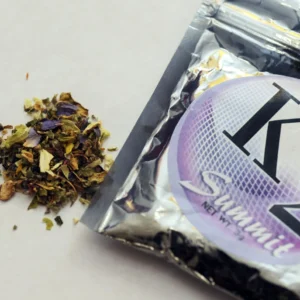


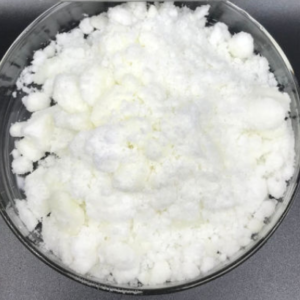
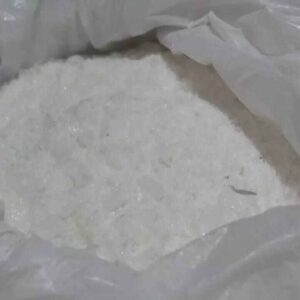

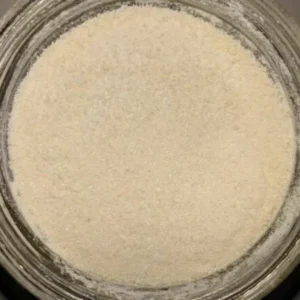
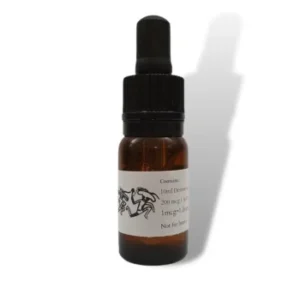
Reviews
There are no reviews yet.